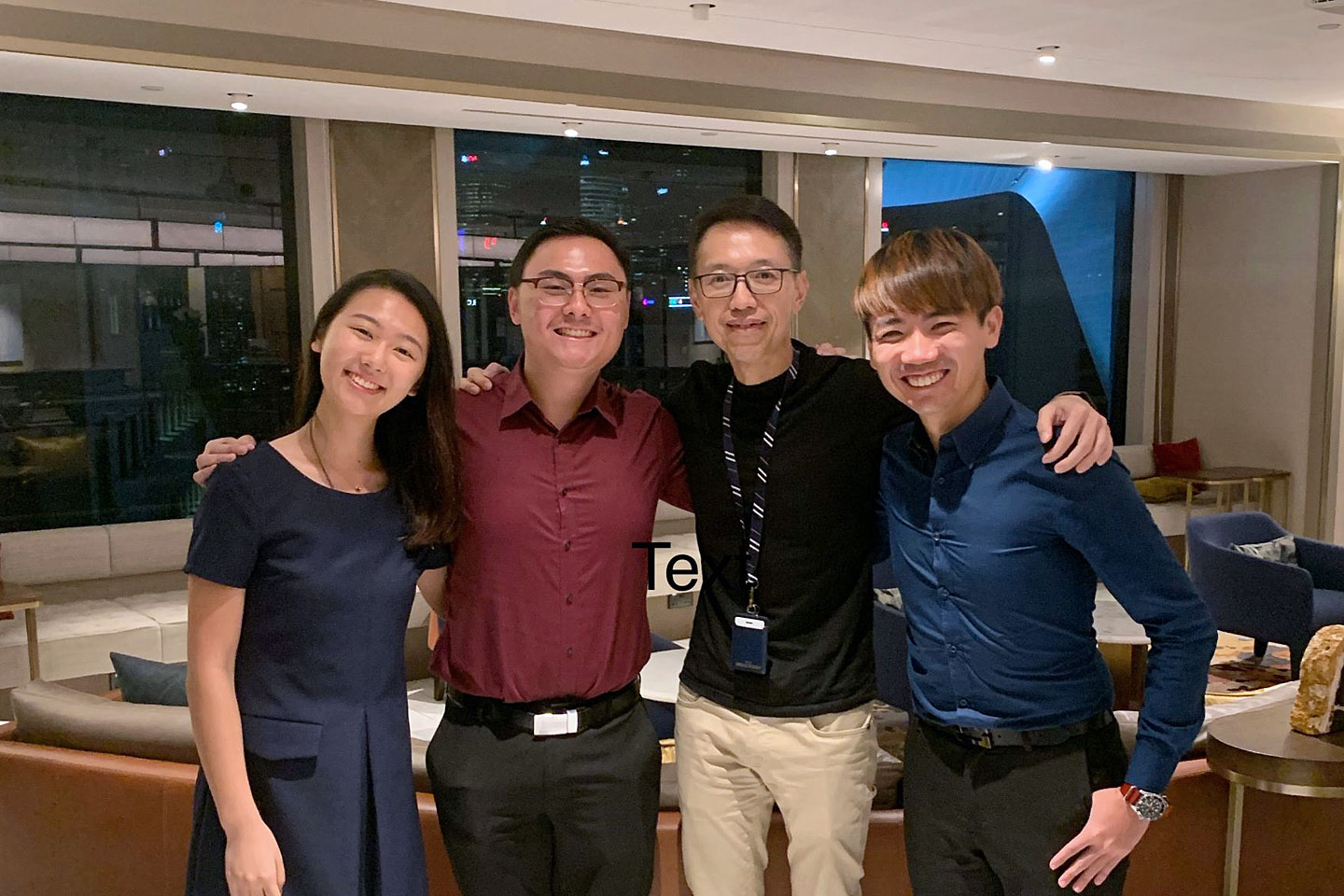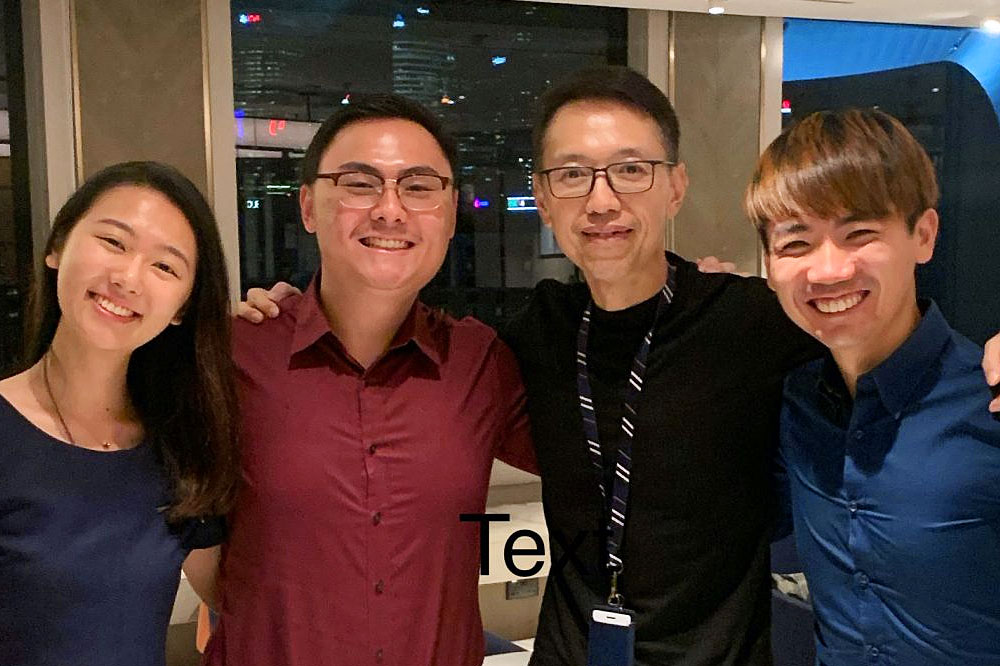Kim Leng spent his entire career with the Monetary Authority of Singapore (MAS). After 25 fulfilling years with the MAS, he decided to call it a day in order to pursue his personal interests. One of the key reasons for his long tenure is the close alignment of his personal values and goals and those of the MAS. On what makes a good education, Kim Leng believes that it is one where the person can sharpen his mind, strengthen his learning abilities, and build strong communication, networking and interpersonal skills.

Alumni Spotlight Stories: Chua Kim Leng

Q: Could you share more about why you had stayed as long as you did at the Monetary Authority of Singapore (MAS)?
Indeed, 25 years is a long time with a single organisation, but throughout my time at the MAS there was really no reason to leave. First and foremost, within the organisation there’s a strong sense of wanting to serve the public and do the right thing. Second, given the diverse functions that the MAS carries out, if one is seeking a new challenge the person can always find a role within the organisation that excites. Third, MAS has been a progressive organisation that constantly seeks to better itself in terms of building an open culture and bringing the best out of its people. With hindsight, I don’t think I could have asked for a more exciting and fulfilling career and for that I’m grateful to the MAS and its people.
Q: Now that you’ve left the MAS, what are your plans?
The plan is simple – divide up my time to do three things. One, travel and see the world, and spend more time with family and friends. Two, help the needy. Three, take up roles or projects that will stimulate me intellectually, and it is for this reason that I’ve decided to sit on the boards of companies and set up Ternary Fund Management. I’ve to say running a fund management company is a very refreshing change – from being a regulator to a regulatee, and being at the receiving end of MAS rules and requirements.
Q: What made you take up a business degree?
People say that education is not the learning of facts, but the training of the mind to think, question and analyse. I subscribe to that view, but that doesn’t mean that it makes no difference what discipline a person pursues at the tertiary level. Clearly one cannot become a doctor or an engineer if he had gone to a business school. Also, it is less likely that a person will do well academically if he were taking subjects that he had no interest in. In this regard, I decided on a business degree because I was interested in economics, accounting and business, and felt that the NUS Business School offered a good mix of these subjects.
In deciding if a job suited me, I looked out for a few things – job satisfaction, ability to add value to the organisation, a fair compensation and a strong alignment in values
Q: What were your considerations in selecting your career path when you were in the university?
I didn’t actively think about my career choice when I first entered NUS. In my undergraduate days, I was a self-taught free-lance programmer and earned some pocket money by doing ad-hoc programming for companies. At that point I thought I might join a reputable tech company after my graduation. However, the finance modules in school sparked my interest in pursuing a career in the financial sector. Wary of the irregular hours as an IT programmer, and given my newfound interest in finance, I then decided to look for a job in the financial sector during my final year and eventually ended up in the MAS.
In deciding if a job suited me, I looked out for a few things – job satisfaction, ability to add value to the organisation, a fair compensation and a strong alignment in values. I count myself very fortunate that the very first company I joined met all four considerations.
Q: What was your role in MAS?
I started with banking supervision. Along the way, I spent several months in the IT department and subsequently in reserves management as part of the MAS job rotation programme. It provided me the opportunity to meet more people, acquire new knowledge and develop different skill sets. These experiences gave me a broader understanding of the important functions that the MAS performs.
However, my interest lies in regulatory and supervisory work, and hence I ended spending a large part of career in this area. While the work may seem routine and unimportant, the reality is the complete opposite. Suffice to say, I never had a dull moment as a financial sector supervisor.
Q: What is your perspective on the evolution of the compliance function?
When I first joined MAS, compliance was largely seen as a cost centre and in some cases a stumbling block to business and growth. The compliance function also did not have much stature within the organisation. This is no longer the case today, largely because many financial institutions had gotten into serious trouble for regulatory breaches and poor conduct. The board and senior management of financial institutions now recognise that having an effective compliance function is critical in building and growing a sustainable business. You’ll also find compliance professionals becoming c-suite executives.
Q: What are some of the challenges you foresee in the industry and what new skills are needed for a compliance professional?
Many, but I’ll list three at the top of my mind – (1) rapid technological advancements and the digital disruption that comes with it; (2) rising cyber-threats; (3) money-laundering and terrorism financing.
I used to say that a person with a strong legal, business and regulatory background would do well as a compliance professional. Today, I’ll include the ability to understand and use technology, to know how technology will change the status quo, and to assess and mitigate the new risks all these will bring.
The Alumni Spotlight Stories is a weekly series that explores a Bizad alumni’s journey from school to the working world. The story was first published in “Alumni Spotlight Stories: From Student Life to the Peak of your Career” compiled by the NUS Business School Alumni (NUSBSA).



